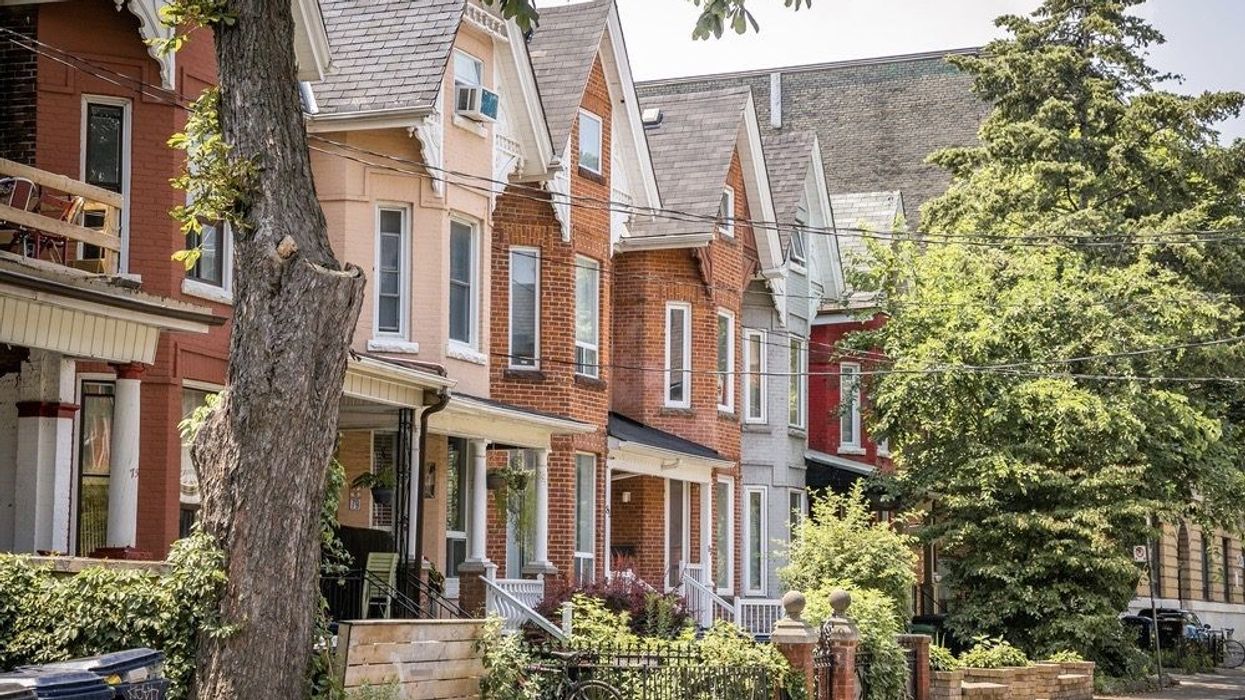A new forecast out from data think tank Oxford Economics has an ominous (or optimistic, depending on how you view the market) outlook on Canada’s housing market.
According to their analysis, real estate prices could decline by 24% by mid-2024, as borrowers grapple with eroding affordability and an all-around pricier borrowing environment.
Borrowers Can No Longer Keep Up
A main contributing factor, states their report, is that housing prices have well outstripped the borrowing capacity of median-income households in Canada, by 19% as of last year. Given prices have only spiraled higher since that assessment (the February data from the Canadian Real Estate Association showed the national average spiked 20.6% year over year to $816,720), that gap has only grown. In fact, says Oxford, it will widen to a whopping 38% by this summer; and that will be the last straw for many would-be borrowers teetering on the edge.

READ: Average Canadian Home Price Passes $800K For the First Time on Record
“We believe this will cause the housing market to reach a breaking point and crash under the weight of its own success before year end,” wrote Tony Stillos, director of Canada Economics at Oxford.
That the Bank of Canada (BoC) has started to increase interest rates will also be a notable factor; the trend-setting central bank hiked its overnight lending rate by 0.25% to 0.50% earlier this month in response to rising inflation, which hit a new 31-year high of 5.7% growth in February. That has some economists expecting the BoC will need to take an even more aggressive approach with their hikes, calling for as many as seven this year. However, Oxford is calling for a more cautious strategy, forecasting the Bank will implement three more hikes this year, before resuming in 2023, to gradually bring the rate to 2% by mid 2024.
Fixed mortgage rates have already been on the rise for months; yields have surged 84.2 basis points (bps) in the past three months, with a 35.4 bps increase in the last month alone. That yields are going up is in response to both the BoC’s hiking mandate, but also largely due to geopolitical tensions and market volatility; investors have been piling into safe haven investments following the Russian invasion of Ukraine.
Currently, the lowest five-year fixed rates on the market hover around 2.74%, with offerings from the big banks in the 3.40% range. Oxford is calling for this to increase to 4.25% this year, and up to 5% by 2023 - an increase that is sure to eat into buyers’ buying power.
Lastly, new government policies - such as the election promises made by the federal Liberal government -- could be coming down the pipe. Oxford names the proposed house flipping tax, as well as a tax on non-resident-owned vacant homes. The report also references the proposed temporary ban on foreign buyers, despite the government voting against it earlier in March.
The Impact of Falling Home Prices
Based on the February CREA data, a 24% decline would bring the national average home price to $620,708 -- a difference of $196,012 -- though values would still hover 15% above pre-2020 levels.
However, says Oxford, the economy should be able to withstand such a drop without risk of a recession, as prices will still be high enough to incentivize developers and create new supply, forecasting that as many as 2.35M homes could be created before 2030 is up, well beyond their previous projection of 1.9M. Should this actually occur, they anticipate price growth will moderate drastically, to just 0.7% annually between 2025 - 2030.
However, the report does include a foreboding worst-case scenario: a price “crash” of 40%, should the market fail to absorb a correction.
“Although unlikely, a crash could see home prices plummet by 40% or more, with dire consequences for the broader economy and financial system,” writes Stillos. “The fallout from a housing crash would look a lot like the US housing meltdown during the financial crisis, despite a minimal role for subprime lending in Canada.”
While it remains to be seen just how home prices play out, Oxford appears to be in the minority in terms of calling for a decline; The CREA revised its forecast this month to call for prices to rise 14.3% on an annual basis to $786,000 this year, before increasing another 3.2% to $811,000 in 2023. As well, with Canada’s new 2022 immigration target of 432,000, it doesn’t appear the demand for housing will dissipate any time soon.





















